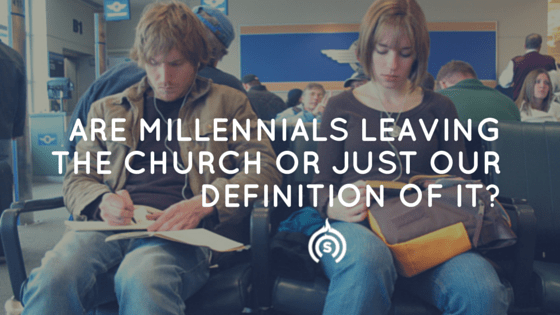
My thoughts this morning come to you after reading a couple of different articles and drinking a couple of coffees.
The first from Relevant Magazine that I read last night, but I’ll get to that second. This morning I came across an article from Church Leaders called The Church Failed Millennials, Just Not in the Way You Think It Did.
The author admits to being 27 years old, which at this point is not too many years younger than I am, since by definition I’m considered one of the older millennials. And granted, I’m writing this from a desk where I live in Peru and not in North America but in reaction to many of the same things I’ve heard for like a decade now even dating back to when I was still living in Canada.
“Early on in my own college-aged angst over the frustrations of church life, I got a piece of sage advice from an older Christian mentor. I think I had been complaining about all the ways my church, or the church, didn’t “get it,” or something like that, when they asked me, “Yes, that’s probably all very true, but have you been praying for it?”
Had I been praying for it?
To be honest, I don’t think I had. I thought the church was there to pray for me, not really the other way around.
Still, I found myself gently challenged in that question, so I started to pray for the church. Not perfectly, of course, but regularly. And actually, I not only prayed for it, I decided to commit myself to it and serve it more diligently.
And you know what? It made it worse in a lot of ways.
By praying for it and serving it, I began to love it like I never really had before. Instead of viewing it through the noncommittal, arm’s distance, American, semi-apathy I had settled into, I saw its weaknesses and failures in the stark, glaring light of love.”
I realize millennials are often accused of complaining but not doing. I appreciated that the author admits to this. However, what if it’s not always a warranted accusation?
[Tweet “Hey Millennial, do you pray for the church or just complain about it? Good question! “]
What if some of us are just asking questions about the way things are and if having weekly meetings is truly effective at disciple making?
What if some are not getting discipled or mentored like they’d wish, and find such opportunities in a more social setting with other believers or in home churches or more “organic” churches? For my definition of organic church, I recommend reading my post What Do You Mean By “Organic” Church?
I read this next article, What Christians Get Wrong About Discipleship. Having written for Relevant last year and knowing personally their editorial standards and the allowed length of posts, I can appreciate that this author probably didn’t share everything she may have liked to. So pointing out what is not in it is kinda useless but I think she brings up very good points, and I’ve been saying the same types of things often of my blog.
The author rightly states:
While we are all called to become disciples of Jesus, we become disciples with one another, learning how to love God and each other as we go. We need to allow others to disciple us by letting them challenge us and encourage us in our walk with God. This is why church and honest relationships with other believers are so central to the Christian life—we need one another in this journey of becoming wholehearted disciples of Jesus.
Both articles have nothing to do with each other other than the fact I basically read one right after the other. But what if one of the itches of many millennials is relationship and being mentored, and finding that the typical once-a-week spectator version of church doesn’t provide that?
Yesterday we had a leader’s retreat in our ministry, and while discussing the possibility of joining ourself with another specific ministry in the USA that likes what we’re doing, the question came up about if they know how much we emphasize the oikos — the extended family of the eklesia (gathering)– more so than the “structure” of the eklesia? It’s for these reasons I’ve been in this state of processing things like this when I read these articles, both touching on these themes in their own way.
It’s been said, and I relate, that millennials want genuine relationships, so why does that get crapped on if many feel like such relationship is not there to be had sitting in a pew once per week looking at the back of someone’s head?
To be a disciple of Jesus doesn’t require attending a certain church, participating in a certain Bible study or praying a certain way. But it does require doing the things of the Kingdom, just as the 12 disciples did. They were sent by Jesus to cast out demons, heal the sick, and proclaim the good news that the “The kingdom of God has come near to you” (Matthew 10:5-15, Luke 10:1-12).
Maybe instead of claiming “millennials are leaving the church in droves” we can do some re-evaluation of what “church” is and being a “disciple” means, and then take it from there?
Even though I don’t feel Rachel Held Evans is the “voice of a generation”, I feel she makes some good points quoted in the first article about how a lot of this generation sees through the appearance and wants the real thing, and is seeking out wherever it can be found.
[Tweet “Many leave institutional church not because they’ve abandoned the faith, but are protecting it.”]
What Are Your thoughts? Share below.
